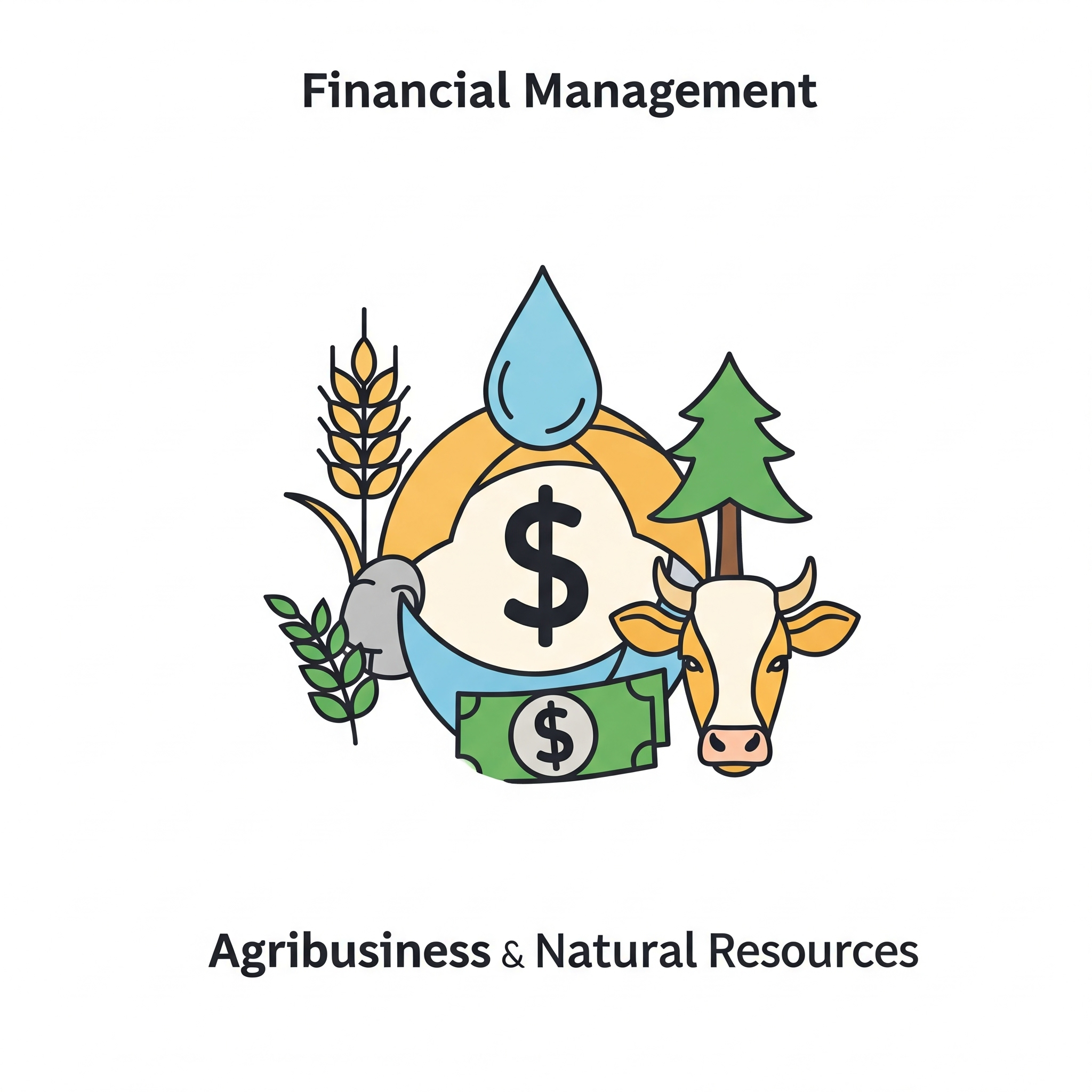
This course provides students with a foundational understanding of financial management principles and their application in agribusiness and natural resource enterprises. The course is structured into six units:
-
Unit 1: Introduction to Financial Management introduces the core principles, decision-making processes, and key terms essential to understanding financial management in resource-based sectors.
-
Unit 2: Financial Statement Preparation and Interpretations focuses on the structure, purpose, and interconnection of the four main financial statements—balance sheet, income statement, cash flow statement, and owner’s equity statement—and how they inform financial decisions.
-
Unit 3: Financial Performance Evaluation – Financial Statement Analysis equips students with tools such as trend analysis, ratio analysis, and DuPont analysis to assess business performance and diagnose financial health.
-
Unit 4: Short-Term Financial Planning Tools introduces budgeting tools including cash flow, enterprise, and partial budgets to support day-to-day and seasonal planning decisions in agricultural enterprises.
-
Unit 5: Time Value of Money explains the concepts of present and future value, including the valuation of cash flow streams and the use of TVM in assessing the economic viability of future financial decisions.
-
Unit 6: Long-Term Financial Planning covers capital budgeting techniques such as payback period, net present value (NPV), and internal rate of return (IRR), enabling students to evaluate and compare long-term investment options in agribusiness and natural resource contexts.
Throughout the course, emphasis is placed on applying financial tools and analytical techniques to real-world decision-making scenarios faced by managers in agriculture, forestry, fisheries, and related industries.
- Lecturer: Lubinda Mwala
